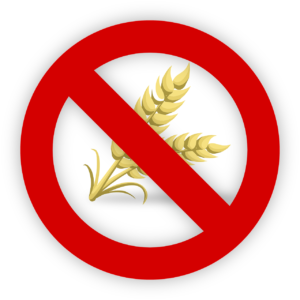Foods that Improve Memory and Brain Health In today's fast-paced world, maintaining optimal brain health and memory is more crucial than ever. A well-functioning brain not only helps you to tackle daily challenges but also ensures a better quality of life as you age.
Fortunately, one of the most effective strategies to boost your cognitive functions, including memory, is something we all do every day: eating. Yes, the food you consume plays a pivotal role in nurturing your brain, enhancing your memory, and safeguarding you against cognitive decline. Let's dive into the dietary choices that can make you sharper, more focused, and, essentially, more intelligent.
Why Brain Health and Memory Are Important
The vitality of maintaining a robust brain health transcends beyond just enhancing our cognitive prowess; it is intricately linked to our overall functionality and well-being. A well-kept brain governs our capacity to process information efficiently, enables us to solve problems with agility, and helps in managing emotions effectively.
Equally critical is our memory, the cornerstone of brain health, which facilitates the retention and retrieval of information, playing a pivotal role in our learning processes, decision-making, and future planning. Fostering an environment for improved brain health and sharper memory not only elevates our cognitive abilities but also acts as a shield against the progression of age-related cognitive decline and neurodegenerative diseases such as Alzheimer’s.
This preventive measure enriches our life quality, empowering us to remain mentally active and engaged as we navigate through the various stages of life. The emphasis on brain health and memory is a testament to their indispensable role in our daily functioning and long-term well-being, advocating for mindful practices and lifestyle choices that contribute to their nourishment and preservation.
Omega-3 Fatty Acids: The Brain's Best Friend
Omega-3 fatty acids, crucial for the structural integrity of brain cell membranes, significantly influence cognitive health and emotional well-being. These essential fats, which the body cannot produce on its own, must be obtained through diet.
Sources rich in omega-3s, such as fatty fish like salmon, mackerel, and sardines, along with plant-based options including flaxseeds, chia seeds, and walnuts, are fundamental in maintaining and enhancing brain function. Consuming these foods regularly contributes to improved cognitive abilities by facilitating better cell communication, supporting brain cell growth and repair, and reducing the risk of chronic brain diseases. Studies highlight the role of omega-3 fatty acids in enhancing memory and cognitive speed, suggesting that they could play a protective role against the aging process of the brain.
Their impact extends to emotional health as well, with evidence pointing towards omega-3s aiding in mood stabilization and alleviating symptoms of depression and anxiety. Integrating these omega-3-rich foods into your daily diet is a strategic approach to nourishing your brain, optimizing its health, and ensuring its longevity.
Antioxidant-Rich Berries: Nature's Memory Enhancers
Berries, such as blueberries, strawberries, and blackberries, are a powerhouse of antioxidants that offer substantial benefits for cognitive health. These small but mighty fruits combat oxidative stress and inflammation, which are known adversaries of optimal brain functionality.
The potent flavonoids present in berries play a crucial role in bolstering communication among brain cells, which is pivotal for memory consolidation and retrieval. Consuming berries has been associated with not only enhancing memory functions but also in delaying the onset of memory decline, showcasing their potential in supporting long-term cognitive wellness.
Research supports the inclusion of berries in one's diet as a strategy for enhancing cognitive performance, particularly in tasks involving memory. By incorporating a variety of these antioxidant-rich fruits into your dietary regimen, you can enjoy not just their delectable taste but also their cognitive benefits. The positive impact of berries on brain health underscores the significance of dietary choices in maintaining and enhancing cognitive functions, making them an invaluable addition to a brain-healthy diet.
Nuts and Seeds: Nutrient Powerhouses for Cognitive Health
Nuts and seeds stand out as indispensable allies in the quest for improved cognitive function and brain preservation. Packed with a unique blend of essential fats, these small yet mighty foods deliver a potent dose of antioxidants and vitamin E.
Each variety, from the brain-boosting walnuts to the antioxidant-rich flaxseeds, brings a unique set of benefits aimed at nurturing cognitive health. The presence of vitamin E in these foods is particularly noteworthy. As a powerful antioxidant, it plays a significant role in protecting the brain's cells from oxidative stress, a contributor to cognitive decline.
Moreover, nuts and seeds are abundant in minerals such as magnesium and zinc, which are crucial for nerve function and cognitive stability. Regular consumption of these nutrient-rich snacks not only supports the structural integrity of brain cells but also aids in the maintenance of cognitive functions as we age. By incorporating a mix of these nutrient-dense foods into your diet, you actively contribute to the fortification of your brain health, leveraging their natural properties to bolster memory and overall cognitive resilience.
Whole Grains: Sustained Energy for Your Brain
Whole grains serve as a foundation for maintaining a high-functioning brain, offering a reliable source of glucose, which is the brain's primary fuel. By incorporating foods like quinoa, brown rice, and whole wheat into your meals, you ensure a consistent energy supply that keeps mental alertness at its peak throughout the day.
This is particularly important as the brain, despite its relatively small size compared to the rest of the body, is a significant energy consumer. The complex carbohydrates found in whole grains break down into glucose at a slow and steady rate, avoiding the spikes and crashes in blood sugar levels that can impair cognitive function and mood.
Moreover, the B vitamins prevalent in these nutritional staples are integral for a healthy brain. They play a key role in brain function by aiding in the production of neurotransmitters, which are crucial for learning and memory. Additionally, these vitamins help in the reduction of homocysteine levels in the blood, high levels of which have been linked to cognitive decline and Alzheimer's disease.
Integrating whole grains into your diet is straightforward and versatile; from starting your day with a bowl of oatmeal to choosing whole grain options for your sandwiches or pilafs, the possibilities are endless. Making whole grains a regular part of your diet is a smart and simple way to fuel your brain health and cognitive endurance.
Leafy Greens: The Brain's Multivitamin
Leafy greens, encompassing vegetables like spinach, kale, and collard greens, stand out in the nutritional world for their dense content of vital brain-supporting nutrients. Among these, vitamin K, lutein, folate, and beta carotene are particularly noteworthy for their roles in promoting cognitive health.
These nutrients work in synergy to support brain function in several ways. Vitamin K is essential for forming sphingolipids, a class of fats that form an integral part of brain cell membranes. Lutein, on the other hand, has been recognized for its antioxidant properties and its ability to accumulate in the brain, suggesting a protective role against oxidative stress. Folate contributes to the reduction of homocysteine levels in the blood, an amino acid that at high levels is linked to an increased risk of cognitive degeneration.
Moreover, beta carotene, known for its antioxidant effects, plays a part in combating oxidative stress, further safeguarding the brain against cognitive decline.
Incorporating these nutrient-rich greens into your diet is an effective strategy to boost cognitive health. Their consumption has been linked to a deceleration in cognitive decline, underscoring the importance of these vegetables in maintaining cognitive functions. As part of a balanced diet, leafy greens provide a multifaceted approach to enhancing and preserving brain health, making them an indispensable component of a diet aimed at supporting cognitive well-being.
Dark Chocolate: A Delicious Memory Booster
The allure of dark chocolate extends beyond its rich, indulgent flavor to offer significant cognitive benefits. Rich in brain-enhancing compounds such as flavonoids, this delectable treat aids in the growth of neurons and blood vessels within the brain's key areas responsible for memory and learning.
These flavonoids, much like the ones found in berries, support cognitive functions by promoting blood flow to the brain, which in turn can enhance memory performance and task-related capabilities. In addition to flavonoids, dark chocolate also contains a modest amount of caffeine, known for its ability to increase alertness and concentration, providing a short-term cognitive boost.
The antioxidants present in dark chocolate further contribute to its brain health benefits by combating oxidative stress, a factor in cognitive decline. When savored in moderation, dark chocolate can be a delightful addition to a diet focused on maintaining and improving cognitive health. Its unique blend of cognitive-enhancing properties makes it not just a treat for the senses but a supportive element for brain functionality, embodying a delicious way to enhance memory and learning capabilities.






